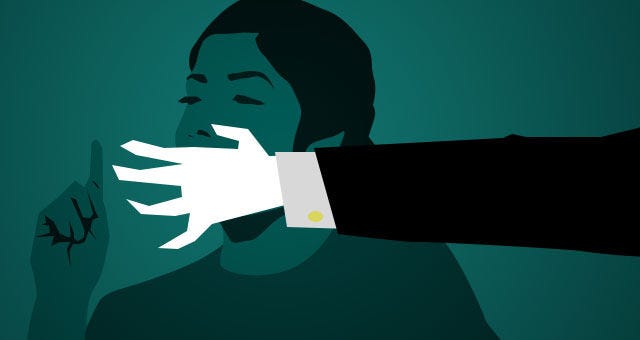The necessity of defamation reform has been felt tangibly and with great force in recent weeks

About three years ago, I spent months on a case in the Supreme Court where lawyers juxtaposed two opposing interests, the right to free speech against the right to a person’s reputation. The result of this contest was a judgement in the case of Subramanium Swamy v. Union of India, that in flatulent prose upheld the constitutionality of criminal defamation. This is the same law which is being used by M.J. Akbar in prosecuting Priya Ramani’s statements against him for harassment. Some may say that, if she is stating the truth, she has nothing to fear. Such opinion arises from the incomprehension of defamation laws and court processes.
The problem with defamation laws
Starting with first principles, the fundamental right to speech and expression is not absolute in India — — but it is a fundamental right. The enjoyment of liberty is the foundation of our republic. Hence any limitations on it, need to be narrow, specific and to an extent which does not cripple the right. Second, the limitation of defamation is mentioned expressly as a reasonable restriction. This has been operationalised by the colonial criminal offence for defamation which provides for imprisonment and a common law civil wrong under which declarations, injunctions but most directly damages can be claimed. These restrictions are far from reasonable.
The antiquity of criminal law of defamation can be judged not only from when it is was first made but more closely the reasons for its birth. It is a law of not only Victorian England but formal expression of a culture of patriarchy — toxic, aggressive masculinity. Concerned by the high number of noblemen who were dying in the upper-class families due to duels conducted to purge rumours over letters and spoken slander (usually about the chastity of the women or the vigour of men) this law was made. It was supposed that a criminal penalty would prevent private reprisals. Is this in step with the culture of a modern, democratic India?
Even the civil law of defamation has several doctrinal problems given that, as it is a judge-made law, not clearly defined in a parliamentary enactment. It has become not only vague but over time has become come to borrow heavily from the criminal law. It is often used for obtaining court orders on the very first day the case heard in the absence of the defendant by which directions for censures are made for months till appeals, or till the litigation ends. Both criminal and civil defamation laws are fundamentally flawed in their substance and their operation which has gradually built around litigation, “strategies” which exploit procedural loopholes. These include — filing both criminal and civil cases in concurrently; a multiplicity of cases being filed in different courts; proxy litigations; choosing remote forums at a great distance from the author or speaker; the valuation being an exaggerated amount in thousands of crores. At the same time, it must be considered that the defences in criminal law such as truth only come into play at the stage of evidence.
Delays render truth a casualty
While there may not be a singular truth in life, does it exist in a court of law? During the course of arguments in the Supreme Court, the late P.P. Rao, a senior advocate arguing against the constitutionality of criminal defamation attempted an answer. He pointed out how the offence of defamation does not consider truth to be a complete defence since it needs to also be a true statement which also needs to be made in public interest. To pepper his submission, he even referred to the crest of the Supreme Court which carries the motto, “Yato Dharmastato Jayaḥ” (Where there is truth, there is victory) quickly following it up by, “…milords, it is on your chairs, your backs are turned towards it”. The implication is that neither truth nor justice may be achieved through the existence of oppressive legality.
An important reason for this is the structural fault of adjudication in which there are huge delays in our courts. This is the underlying and common feature beyond the abuse of the remedy of defamation. Given that verdicts will rarely be reached a large number of cases exists only as a process and rarely as a result. Hence, in this judicial duel between free expression and the right of reputation the ultimate casualty is the truth and the only victory is case pendency.
The path forward
So do we completely forsake defamation itself? Move away from the social need of establishing the veracity of statements when they negatively impact another person. Does a culture of free expression, which relies predominantly on screenshots, hearsay accounts with the objective of protecting and respecting the choice of victims, completely and absolutely forsake a problematic, legal process? Or should we explore ideas to fix oppressive laws and systems that dissuade people from approaching courts?
Such questions, approach and the policy roadmap will to a large measure be defined by the leadership of women who have tangibly demonstrated the oppression of law on those who lack social power and birthed privilege — of gender, caste, ethnicity and sexual orientation. It may sound naive and optimistic, but my hope is, that we retain our faith in the law and move to fix it — in its proper role, as a method for establishing truth without oppression, as an avenue for healing and reformation, and if possible in future even support larger social reconciliation.
An edited version of this article was published in the Times of India on October 21, 2018.
Disclosure: I appeared in the constitutional challenge to criminal defamation for the Foundation for Media Professionals as a junior lawyer.